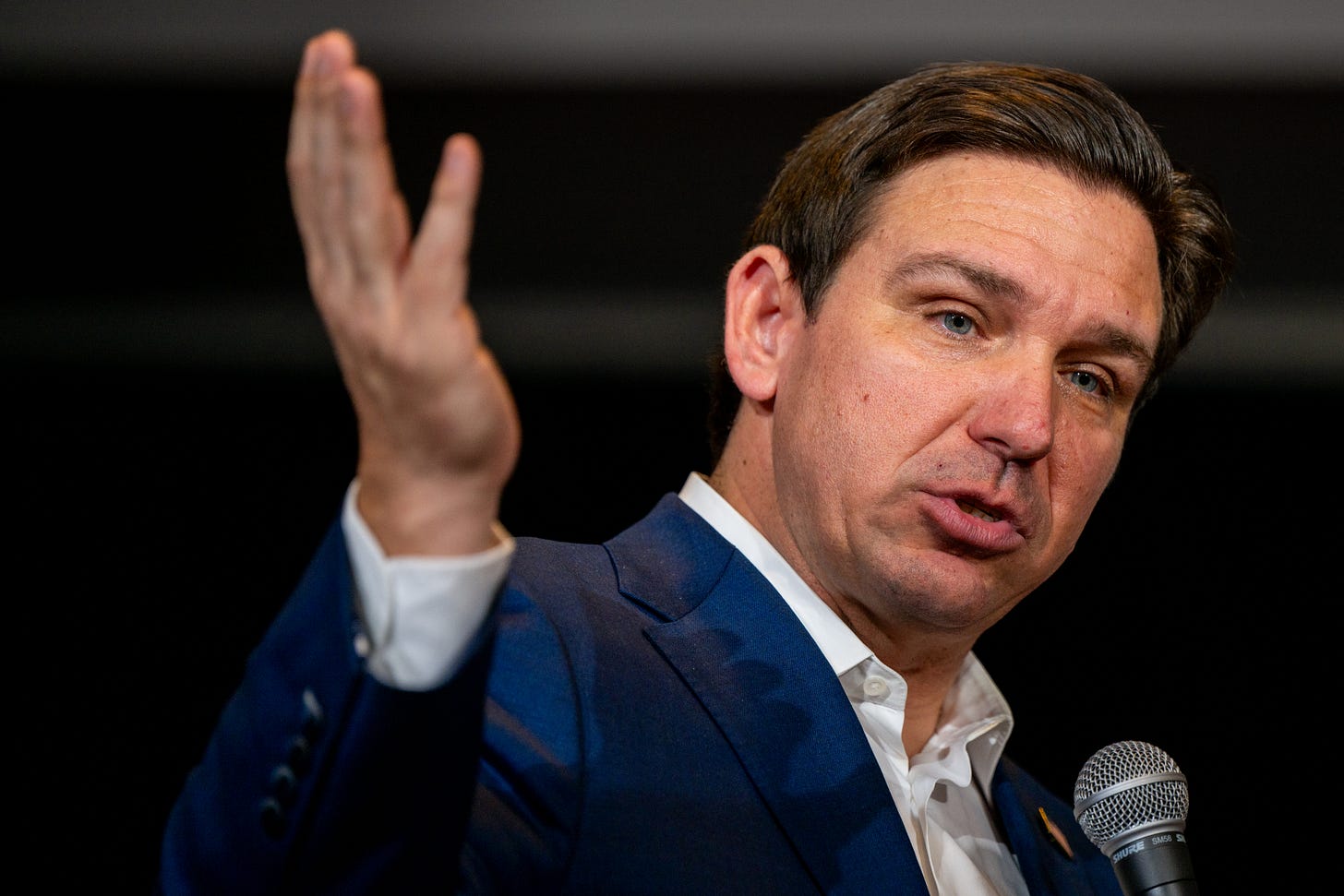
Nothing is inevitable in politics.
That’s a useful assumption in a democracy. Without it, challengers to the status quo would never make the effort of running for office because there would be no hope of upsetting settled expectations. If you find yourself nodding along to this observation about democratic hope, keep in mind that it runs in any number of ideological directions. If Donald Trump had listened to the wall-to-wall pundits in 2015 who insisted he couldn’t possibly win the Republican nomination the following year—that it was inevitable he would lose—our timeline would have unfolded rather differently than it has.
On the first day of my course at Penn last fall—a class titled “The 2024 Republican Primaries”—I put the RealClearPolitics aggregation of GOP primary polls on a screen for everyone to see and discuss. It was late August. At 53.5 percent, Trump was running 40 points ahead of his nearest rival, Florida Gov. Ron DeSantis, who was coming in at 13.5 percent. I pointed out that as recently as late February, the top two candidates were separated by just 13 points. What happened at the end of March to send Trump skyward and DeSantis into a downward spiral from roughly 30 percent support to the low teens? The answer, as one of my students pointed out, is that Trump was indicted for the first time at the end of March. Several more indictments had followed, which reinforced the trend. By the time of our final class session in early December, Trump was leading by 48 points. Today he leads by nearly 55.
I never told my students outright that it was inevitable Trump would win the Republican nomination this year. But tracking those polls every week, watching the debates and grading the short papers my students wrote about them, and studying the history of the GOP from the mid-60s down to today, I did come to believe Trump was very, very likely to win the primaries. The outcome wasn’t inevitable. But it was all but inevitable. Trump could have a stroke. He could be assassinated. But short of such acts of God or man, Trump was going to be the GOP nominee for president in 2024. Because Republican voters wanted him to be the nominee. It really was that simple. (The only political analyst who surpasses me in this conviction is The Bulwark’s Jonathan Last.)
The Challenge of Faking Authenticity
Keep reading with a 7-day free trial
Subscribe to Notes from the Middleground to keep reading this post and get 7 days of free access to the full post archives.




